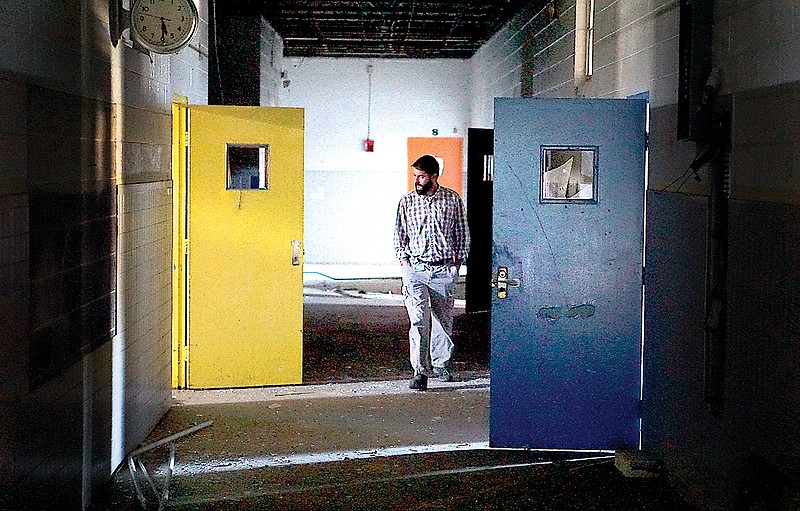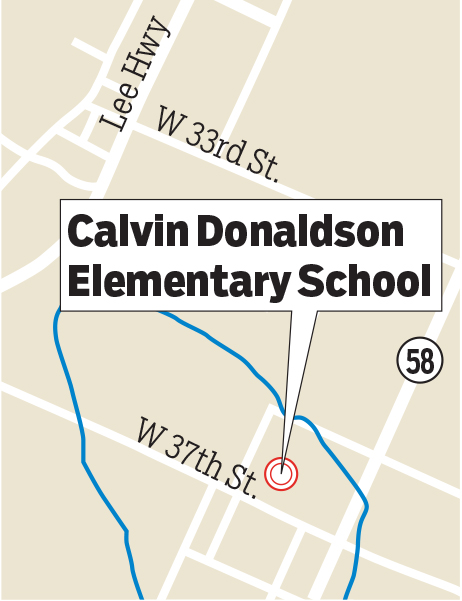By the numbers
* City of Chattanooga: Museum sought $500,000; $500,000 pledged * Hamilton County: Museum sought $500,000; amount pledged to be determined * Lyndhurst Foundation: Museum sought $500,000; $500,000 pledged * Benwood Foundation: Museum sought $500,000; $500,000 pledged -- contingent on county funding * Other foundations: Museum seeks $275,000; amount pledged to be determined * Corporate donations: Museum seeks $25,000; amount pledged to be determined * Individual donations: Museum seeks $200,000; $125,000 contingent on county funding; rest to be determined * Goal: $2.5 million Source: Creative Discovery Museum
The Creative Discovery Museum has high hopes to open an early childhood development center for infants and toddlers in Alton Park, a mostly poor and black Chattanooga neighborhood. But the project may have an uphill battle, because it looks like Hamilton County might not pitch in a hoped-for $500,000 from its roughly $672.5 million annual budget.
"Unfortunately, at this particular time, we don't have a revenue source for that," county Mayor Jim Coppinger said this week.
Officials from the museum, a popular downtown attraction, want to open the early childhood development center in a vacant annex building at Calvin Donaldson Elementary School.
They envision as many as 400 children as young as 6 weeks old receiving care from instructors steeped in the latest educational methods and theories. Infants and 1-, 2-, and 3-year-olds would be exposed to the stimulation and learning experiences that they need for optimal brain development during the critical first three years of life, museum officials say. That way, they won't show up for kindergarten already behind their peers from high-income households.
Children from higher-income families are exposed to 30 million more words than children whose families are on welfare, according to a groundbreaking 2003 study by researchers at the University of Kansas.
"Language is incredibly important from birth on. Talking to children," said Jayne Griffin, the museum's director of education.
But the center's fate hinges on finding $2.5 million in one-time capital contributions needed to fix up the building. The museum planned to get the money from the city of Chattanooga -- which already pledged $500,000 -- Hamilton County, area foundations and other donors.
Losing county funding would put the project $1.125 million short, because $500,000 from the Benwood Foundation and $125,000 from an anonymous donor are contingent on the county pitching in.
"The county funding is a central component because of some of the [financial] matches," museum Executive Director Henry Schulson said.
Benwood Foundation President Sarah Morgan was disappointed to hear the county might not participate.
"What a missed opportunity," she said.
"We were excited because the Creative Discovery Museum has a track record," Morgan said. "We've just got to get better at preparing [low-income] kids for kindergarten. Right now, what happens is they're usually two years behind when they walk in the door."
Museum to ask again
Museum officials say they quietly sought county funding last year through an amendment after the budget had been formed. Now they plan to ask again before next year's budget is voted on in late June.
"In March and April, we'd like to re-approach the county commissioners and ... do it in a much more public way," Schulson said late in February.
Coppinger said he's been in conversations for a year with museum officials, but he doesn't see a way to find $500,000 this time around.
"For me personally, it's always difficult to say no to ... early childhood development," Coppinger said. "I'm extremely supportive of what they're trying to do."
If the museum's project was to get county funding, then something else in the budget would have to be cut, he said. Coppinger's office puts the county budget together for the nine commissioners to review. Commissioners don't have line-item-veto power. They simply vote to approve or deny what's brought to them by the mayor, who's elected countywide. However, if a majority of commissioners asked him to support the funding, Coppinger said he'd put the $500,000 expense in the budget.
"If [museum officials] could go out and solicit the support of six commissioners, then I would be more than happy to bring that forward," said Coppinger, who's advised Schulson to try to find six votes to be sure of getting the five-vote majority required.
"I say that just in case one of them wavers. Give yourself that cushion," Coppinger said. "[Schulson] hasn't come back and said there's six commissioners that support it."
Tiny fraction or 'big spend'?
The $500,000 funding request would be a fraction of the county's current annual budget of $672.5 million-- about 0.07 percent. For comparison's sake, if an individual had an annual income of $40,000, 0.07 percent of that would be $28.
However, the $500,000 request is sizable, compared to funding the county gives to "supported agencies," such as the Chattanooga Area Chamber of Commerce, which gets $600,000; the Urban League, $50,000; the Bessie Smith Cultural Center of Chattanooga, $62,653; and Erlanger hospital, $1.5 million.
"We clearly consider a half million dollars a big spend," Coppinger said.
Nor does the mayor want to tap the county's general fund balance, or savings, of more than $110 million, $26.25 million of which is earmarked to help subsidize the expansion of the Volkswagen assembly plant. The county has to keep $55 million to $60 million in the bank for financial stability, Coppinger said, which helped it secure its AAA bond rating.
The county commission has other potential funding sources.
Each of the nine commissioners gets $100,000, annually, in discretionary funds. So a commissioner or commissioners could allocate some, or all, of that money toward the early childhood center.
Also, commissioners recently voted to divide the proceeds from the future sale of East Brainerd Elementary School between the commission's nine districts, which mirror the county's school board districts. That's expected to generate several million dollars.
'A good program'
County Commissioner Warren Mackey, whose District 4 includes Calvin Donaldson Elementary, said he supported the museum's first funding request months ago.
"I supported it, but I knew the number of votes wouldn't be there," Mackey said.
Some commissioners were concerned then, he said, about fixing up the building for a child care program run by a private organization.
"It's a good program," Mackey said. "To ask for half a million [dollars] seems reasonable to me."
The county has set aside about $100 million over the last four years to fund new schools, but none of those buildings are in District 4, he said.
"There's not an equitable share of the county's budget being spent in the 4th District," Mackey said.
The Chattanooga City Council pledged $500,000 toward the early childhood development center on Sept. 3, 2013, when Mayor Andy Berke's administration put it in the 2013/2014 capital budget.
"All that I can say at this time is that the city of Chattanooga committed $500,000 toward the creation of an early childhood center at Calvin Donaldson, and if the project will not go forward, we will have to release those funds," city spokeswoman Lacie Stone said. Releasing the $500,000 means it would go back into the city's general fund.
Contact staff writer Tim Omarzu at tomar zu@timesfreepress.com or www.facebook.com/tim.omarzu or twitter.com/TimOmarzu or 423-757-6651.

